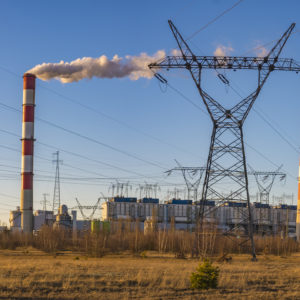Monday was mail day, rather than May Day, for Energy Secretary Rick Perry, who received a letter from seven Democratic senators expressing concern over a proposed study of the effect of regulation on the American energy market. Senators Maria Cantwell, D-Wash., Debbie Stabenow, D-Mich., Mazie Hirono D-Hawaii, Al Franken, D-Minn., Tammy Duckworth, D-Ill., and Martin Heinrich, D-N.M., wrote in a heated terms about the proposed study, which they called a “thinly disguised attempt” to promote coal and nuclear power at the expense of wind and solar.
The letter, which came in response to a request for a technical study, demonstrates the increasingly contentious nature of energy policy under the Trump administration.
“The study, as you have framed it, appears to be intended to blame wind and solar power for the financial difficulties facing coal and nuclear electric generators and to suggest that renewable energy resources threaten the reliability of the grid,” the senators wrote.
“Perhaps that is why Travis Fisher, a former official with the Koch Brothers-funded Institute for Energy Research….was chosen to lead the study,” they continued.
Fisher, who worked for the Institute for Energy Research for three years, left to join the Department of Energy several months ago. He previously worked as an economist with the Federal Energy Regulatory Commission (FERC).
Instead of suggesting changes to the study’s methodology, or suggesting an alternate figure to examine the issue, the letter instead tried to answer the questions posed by Perry’s study.
“It does not take a Ph.D. in economics to understand that it is historically low natural gas prices that are challenging the viability of other conventional generating sources in electricity markets,” the letter said, before citing several statistics about the growth of natural gas generation.
The bulk of the letter praised alternative energy sources, including solar and wind power, highlighting their growth as “support services” in certain markets. “Your Study (sic) must take these benefits into account,” the senators said.
In conclusion, the senators again attacked Fisher, saying that for a 60 day review “conducted by ideologues associated with a Koch Brothers-affiliated think tank” to supplant formal scientific research “would be a grave disservice to American taxpayers” and potentially an “international embarrassment.”
The letter closed with a note on Perry’s time as governor of Texas, when he “demonstrated that renewable energy can enhance fuel diversity, reduce energy prices, and improve grid reliability and resilience.”
“We had mistakenly hoped that you would pursue these same results for the nation,” the senators wrote.
The letter came in response to an April 14 memo from Perry to his chief of staff calling for a study of the long term reliability of America’s electric grid. Expressing concern about how “certain policies are affecting, and potentially putting at risk, energy security and reliability,” he called for a 60-day study examining whether burdensome regulations were forcing the premature closure of baseline power plants, including coal and nuclear facilities.
“We are blessed as a nation to have an abundance of domestic energy resources, such as coal, natural gas, nuclear and hydroelectric, all of which provide affordable baseload power and contribute to a stable, reliable and resilient grid,” Perry wrote in the memo.
The lawmakers were not the only ones to contact Perry with concerns about the proposed study. Business associations representing the wind, solar, and broad advanced energy industries also wrote to the energy secretary on Friday. The Advanced Energy Economy, American Wind Energy Association, and Solar Energy Industries Association jointly signed a letter urging Perry to “follow standard practice” by conducting the study “in an open and transparent manner.”
Specifically, the groups asked for an opportunity to comment on a draft of the proposed study prior to its finalization. In lieu of that, they also suggested a technical advisory committee that could vet scenarios and assumptions. From the language of the letter, the renewable energy associations seem to fear that without their participation, the study will skew in favor of fossil fuels.
“Public input, including from energy market participants, grid operators, and regulators, would help ensure that any resulting recommendations from the study are based on the best available information,” the letter read.
“In particular, this inquiry would benefit from our associations providing the Department with the latest information about advanced energy technologies and how grid operators are currently using these technologies to help keep the lights on at all times and under all conditions,” it continued.
However, representatives from the nuclear energy industry welcomed the proposed study.
“New York and Illinois moved to save their reactors because they too saw nuclear energy as offering a value that should not be characterized by price alone,” said Maria Korsnick, president and chief executive of the Nuclear Energy Institute. “We’re glad to see that Secretary Perry and the Trump administration see the problem as well.”

